#losing ground
Explore tagged Tumblr posts
Text
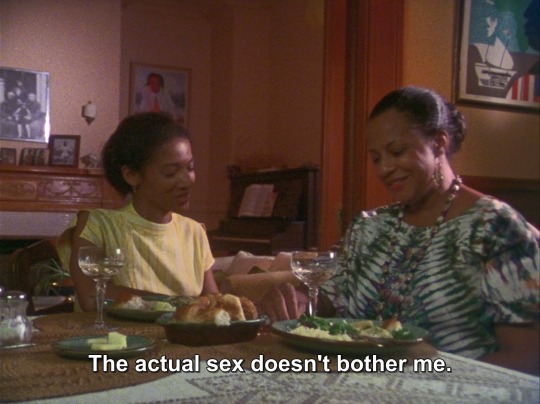








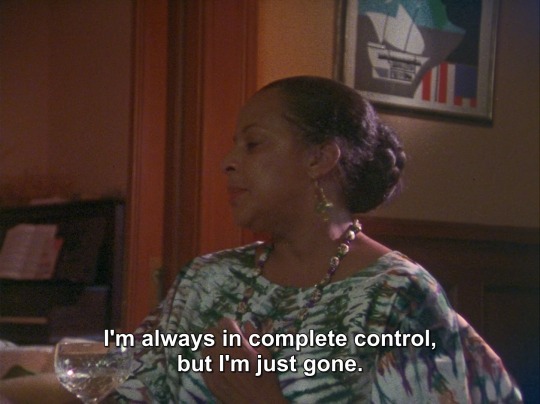




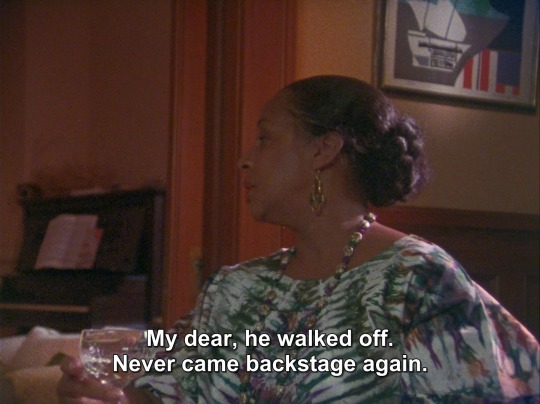
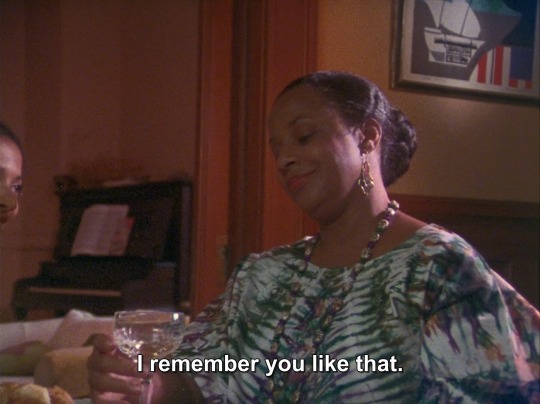


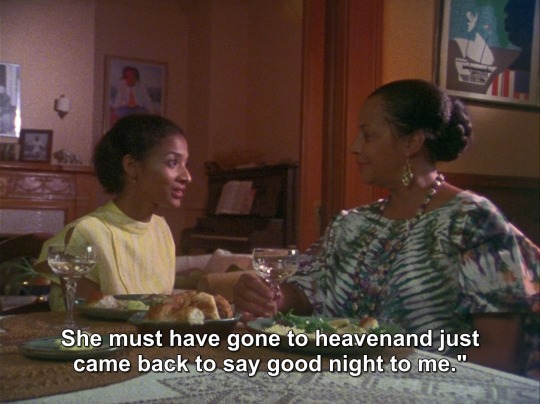
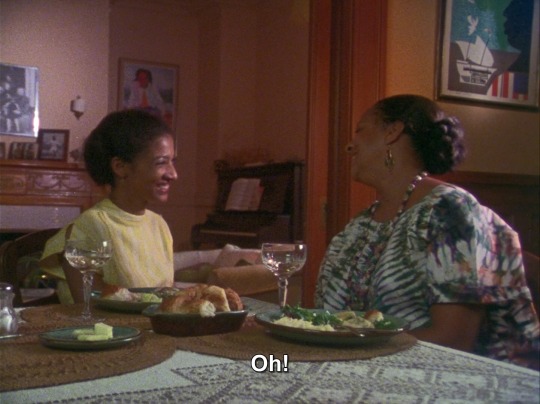
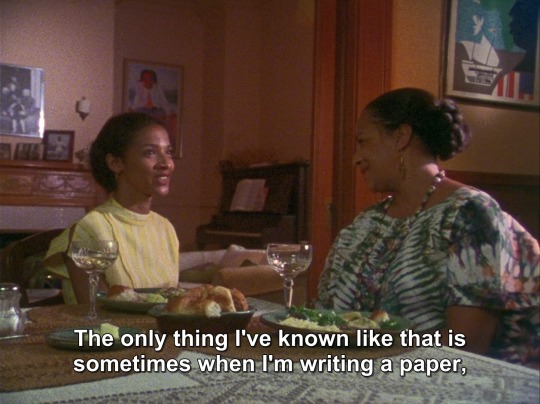
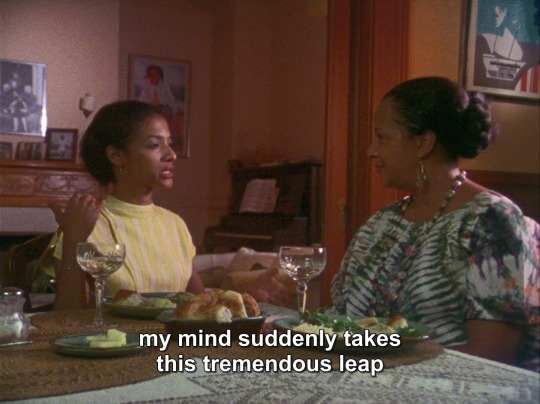

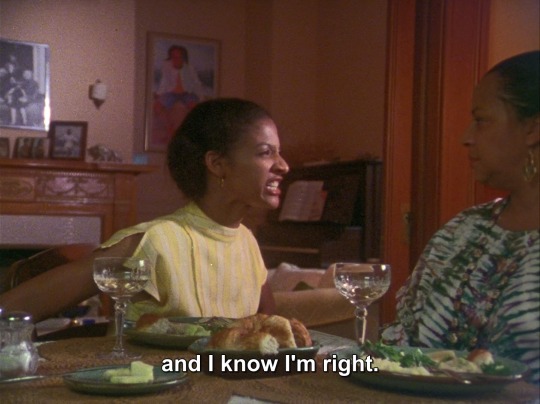



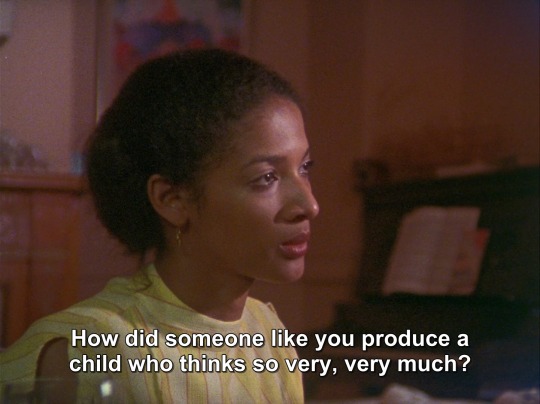
LOSING GROUND (1982) dir. KATHLEEN COLLINS
336 notes
·
View notes
Text
What about this sense that everything has become very slippery, everything is slipping right out of my fingers & faster every day?
— Chen Chen, from God, Gods, Powers, Lord, Universe (Narrative Magazine, 2023) (via Read a Little Poetry)
37 notes
·
View notes
Text
Favorite films discovered in 2024
This year, I focused more on rewatching films I hadn't seen in a long time rather than racking up new titles. However, I still encountered plenty of new faves, many of them movies that have been on my watchlist for years. Here are the top twenty.
But first, some interesting patterns in this year's list...
Most represented decade: 1960s
Earliest film represented: 1932
Newest film represented: 1999
Creatives who show up more than once: Robert Mulligan, Walter Matthau, Boris Karloff
The Window (dir. Ted Tetzlaff, 1949)
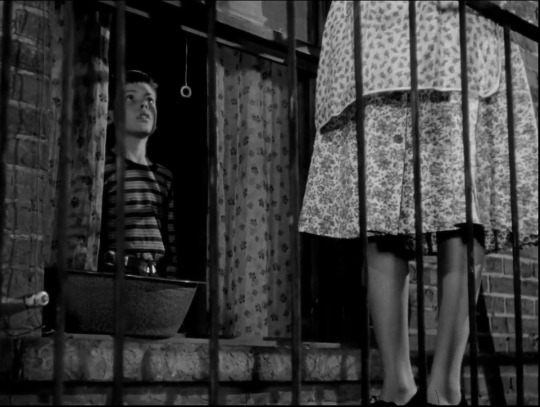
A young boy (Bobby Driscoll) living in a squalid NYC apartment building witnesses his neighbors (Paul Stewart and Ruth Roman) committing a murder. Unfortunately, the kid's penchant for tall tales prevent anyone from believing him-- except for the killers, eager to alleviate themselves of an inconvenient witness.
Precious few thrillers earn the moniker “Hitchcockian” as well as this intense little gem from RKO. The Hitchcock vibes make sense when you consider Hitchcock’s cinematographer from Notorious was in the director’s chair and the source material was written by Cornell Woolrich, also responsible for the short story behind Rear Window. Augmented by on-location photography of New York City and a grimy, desolate sense of urban decay, The Window is both a great suspense yarn and classic film noir. Despite having a kid for a lead character, the film pulls no punches: both its small-time crook villains and the city setting feel palpably dangerous.
My Neighbors the Yamadas (dir. Isao Takahata, 1999)
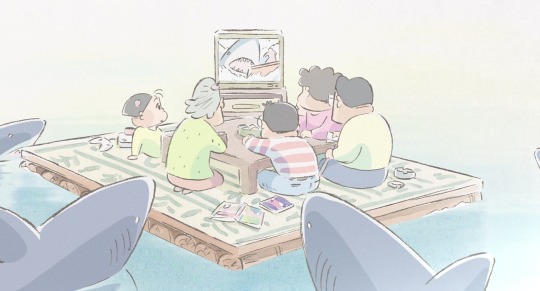
The Yamadas, an average middle-class Japanese family, navigate the perils of sharing a television set, a kid going missing during a shopping trip, awkward wedding speeches, and other misadventures.
Between the original Studio Ghibli directorial duo of Hayao Miyazaki and Isao Takahata, Miyazaki will always be the more popular filmmaker, but I think Takahata’s films are more intellectually and emotionally rewarding. This is not meant as a hit on Miyazaki’s undeniable greatness, but Takahata’s movies are far more challenging. That being said, My Neighbors the Yamadas is a lighter entry in his filmography, a slice of life comedy about the eponymous family and their shenanigans in modern Japan. However, beneath the whimsical humor runs an undercurrent of melancholy, an awareness of the transience of life in both its lovely and absurd moments. To date, it gets my vote for the most underrated Ghibli film.
A New Leaf (dir. Elaine May, 1971)
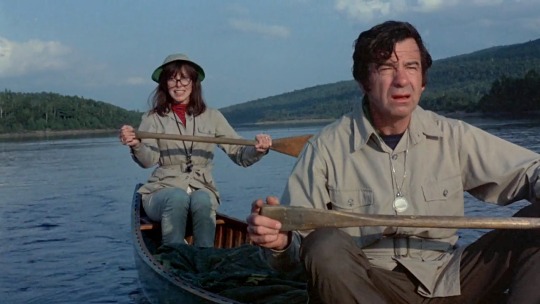
After squandering his ample inheritance, a middle-aged New York layabout (Walter Matthau) decides to marry an eccentric botanist (Elaine May) for her money then murder her ASAP.
Elaine May only directed a few films, but the two I’ve seen—this and the long-maligned Ishtar—were a lot of fun. A New Leaf is the better film though, far more focused and consistently funny. I don't usually belly laugh when watching a movie at home alone, but I did several times here. Even just thinking about some of the things that happen in this film can make me start laughing again. I understand the existing version was not May’s preferred cut and she felt it was butchered by the studio. Even so, this is a great movie regardless of that and one I really want to rewatch soon.
Cash on Demand (dir. Quentin Lawrence, 1961)
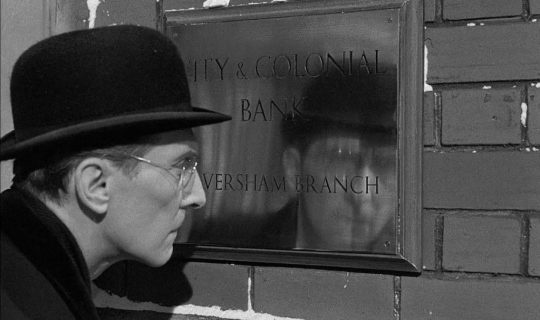
Uptight, unpleasant bank manager Harry Fordyce (Peter Cushing) is the boss from hell to his employees, but to criminal extraordinaire Gore Hepburn (Andre Morrel), he's the key to a successful heist. Posing as an insurance representative to get access to Fordyce's office, Hepburn tells the manager he's holding his wife and child, whose lives will be forfeit if he doesn't help him relieve the bank of ninety thousand pounds.
Ho, ho, ho, guess who's got a new Christmas classic to enjoy every year? Cash on Demand is not only a strangely enervating riff on A Christmas Carol's basic set-up (a miserable man is spiritually redeemed through an encounter with ghosts-- or in this case, bank robbers), but it's one of the best, tightest one-location thrillers I have ever seen. I genuinely had no idea where the story was going and found myself in absolute agony as the noose grew tighter around our protagonist's neck. It's a testament to both the writing and Peter Cushing's detailed, very human performance that this film is the emotionally powerful piece of work that it is, and not just a fun, clockwork heist yarn.
Letter from an Unknown Woman (dir. Max Ophuls, 1948)
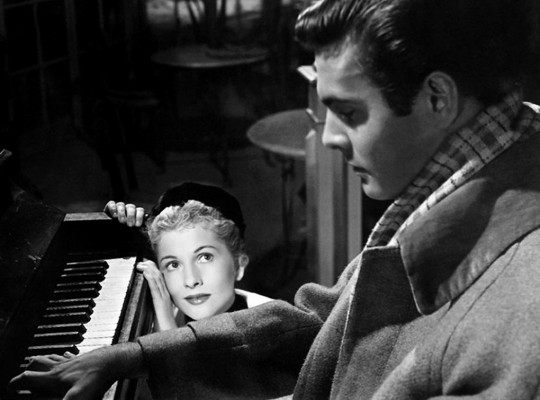
While trying to evade a duel, an aging playboy (Louis Jordan) receives a letter from a dying woman (Joan Fontaine) who claims he was the love of her life. The letter recounts the details of their love affair, which was the centerpiece of this woman's life and only a mere erotic interlude in his.
The best way to describe this movie is lush romantic melodrama married to a bitter, emotionally brutal tale of a life wasted. The movie is heartbreaking but beautifully shot and performed. I’m not always the biggest fan of Fontaine, but she is fantastic here. Also, I need to watch more Max Ophuls.
Sudden Fear (dir. David Miller, 1952)
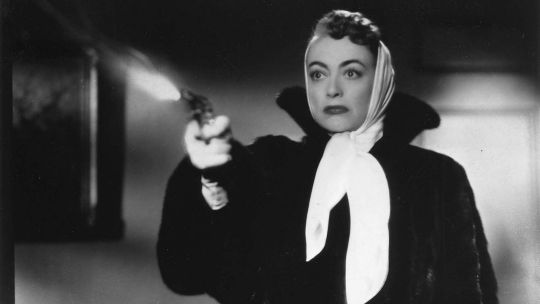
A middle-aged playwright (Joan Crawford) thinks she’s found love with a would-be matinee idol (Jack Palance)—instead she realizes she’s being targeted by her new hubby, who only wants her wealth. But he mistakes her emotional vulnerability for a lack of discernment—and a lack of desire to get even.
I like my women-in-peril thrillers when they feature clever heroines driven to survive whatever nightmare their antagonists throw at them and Sudden Fear is amazing in this regard. I know everyone loves Joan Crawford best in Mildred Pierce, but I was floored by her performance here, especially in the dialogue-free scenes. There are campy moments (which I adore), but the story is emotionally compelling and I not only wanted Joan's character to survive, but to thrive post-shitty marriage.
Thieves Like Us (dir. Robert Altman, 1974)
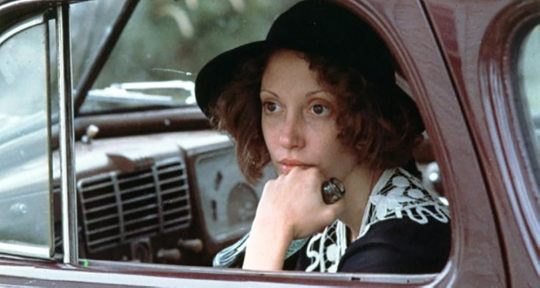
Young lovers Bowie (Keith Carradine) and Keechie (Shelley Duvall) yearn for a white picket fence, a quiet porch, and a case of Cokes (probably because that's all they drink in this film). Too bad Bowie is an escaped convict tied up with bank robbers. Too bad it's the Great Depression. At least there's plenty Coke. Want a Coke?
Most films set in the past do not as painstakingly recreate bygone worlds as strongly as Thieves Like Us. Set in Depression era Mississippi, this film captures the harsh, bleak reality and romantic, consumerist fantasies of its star-cross’d leads, played with sensuous naivete by Keith Carradine and the late, great Shelley Duvall. This is more than just yet another Bonnie and Clyde riff—it’s a tragedy about the elusive American Dream, with snippets of radio music, programs, and ads acting as a Greek chorus in a truly inspired touch. Robert Altman can be an acquired taste, but this is easily my favorite of his films to date.
Targets (dir. Peter Bogdanovich, 1968)
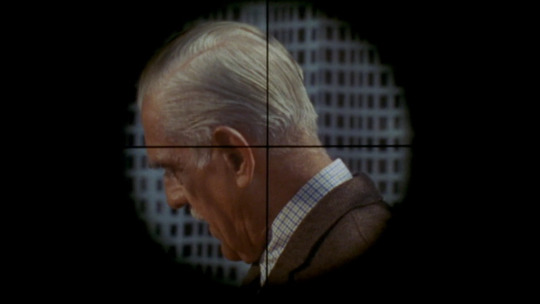
The paths of an aging horror star (Boris Karloff) and a psychotic mass shooter (Tim O'Kelly) cross at a drive-in theater.
Targets was not what I expected: it's a threeway character study between the disheartened horror star, the psychotic shooter, and 1960s America itself. To be honest, you could remake this movie now with a former ‘80s slasher star making the same musings and it would still seem credible—but then of course, you wouldn’t have Karloff in one of the best performances of his career. Targets is rendered even more chilling by its docudrama style. The violence shown isn’t sensationalistic, but presented in clinical detail, making it feel more authentic. Gorier films haven’t frightened me as much as this slow-burn character study.
Losing Ground (dir. Kathleen Collins, 1982)
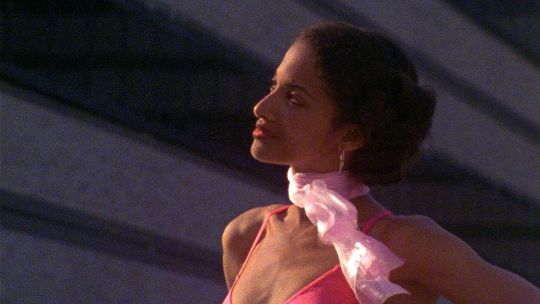
Despite finding pleasure in research and theory, philosophy professor Sara Rogers (Seret Scott) envies the escatic nature of her painter husband, Victor (Bill Gunn). Their difference in temperaments and Victor's adulterous straying also strain the marriage. However, once Sara takes a job performing a sensuous, emotional role in a student film to get in touch with her own artistic side, Victor grows suspicious and jealous in turn.
Losing Ground was sold to me as a film about a crumbling marriage, but it's more than that. It might be more accurate to call it a portrait of self-discovery, a woman extending beyond her comfort zone to live more fully. I found myself strongly relating to Sara-- like her, I have a creative side I've often been timid to share, being more comfortable with the mind than the body. Being an independent film, it eschews the Hollywood histrionics and melodrama that would normally accompany this subject matter and it's paced perfectly at 90 minutes. Though filmed in the early '80s, the film only played the film festival circuit and never enjoyed a proper theatrical release. Only in 2015 was it rediscovered and then released on home video. The director Kathleen Collins died young, but this film stands a testament to her passion and talent.
Cactus Flower (dir. Gene Saks, 1969)
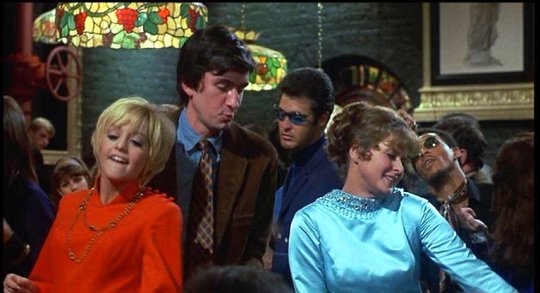
A middle-aged dentist (Walter Matthau) who poses as a married man to fend off romantic commitment decides to buckle down and wed his much younger girlfriend (Goldie Hawn, looking like a mod Tinker Bell). However, when she insists on speaking with his made-up wife, he recruits his no-nonsense nurse (Ingrid Bergman) into the charade.
Cactus Flower is what I often call a transitional film: released in the late ‘60s, it has one foot in the classical style of Old Hollywood and another in the more liberated counterculture that was shooting out hits like Easy Rider and The Graduate. Directed with unexciting competence by Gene Saks, Cactus Flower’s success largely comes from Ingrid Bergman, Goldie Hawn, and Jack Weston. Bergman I could watch in anything, so I’m biased perhaps, but she walks the fine line between funny and touching as the lonely woman who finds emotional liberation through her roleplaying. The scene where she gets groovy on the dance floor is a highlight of her entire screen career and no, I AM NOT KIDDING.
The Black Room (dir. Roy William Neill, 1935)
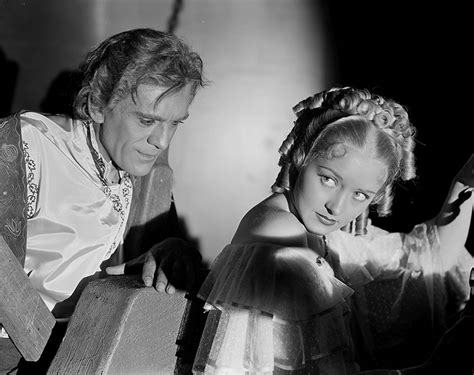
Two aristocratic brothers (both Boris Karloff) are at odds over the love of a young woman (Marian Marsh) and an ancient prophecy forecasting the end of their bloodline.
Boris Karloff dives into a double role in this deliciously gothic melodrama. Columbia pulled out all the stops for this one: it drips with sumptuous set design and expressionistic lighting. I was particularly taken by this film’s slightly tongue-in-cheek approach to a more 18th century mode of gothic terror. It goes for full-blooded melodrama with its innocent maidens, secret dungeons, lecherous villain, and ancient curses. It’s as close to a 1930s Castle of Otranto adaptation as we’ve got and by God, I'm grateful for its existence.
Freud: The Secret Passion (dir. John Huston, 1962)
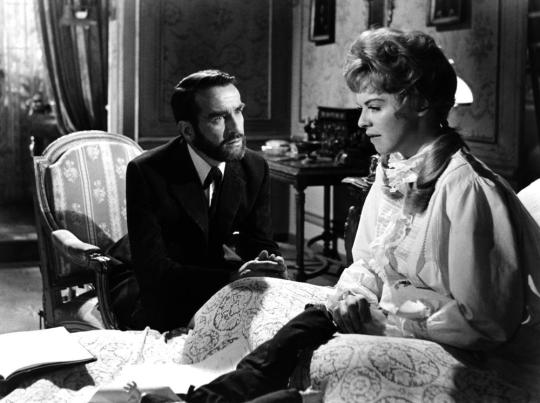
In the late 1880s, young psychiatrist Sigmund Freud (Montgomery Clift) probes into the inner lives of his "hysterical" patients to discover the roots of their mental illnesses. However, these journeys into the subconscious worlds of others bring him into uncomfortable contact with his own demons.
Listening to a podcast episode on John Houston’s Key Largo led me to works of his I hadn’t heard of, such as Freud. I was initially skeptical it could be good. Biopics are my least favorite genre, but this film isn’t so much a biopic as a psychological drama in which Freud is the protagonist and some of his ideas are illustrated through his interactions with the other characters. Instead of wasting time being some melodrama ABOUT Freud the man (the route most biopics go regarding their subjects), it’s about his theories and philosophy, which is a far more interesting approach. The result is a probing, intellectual work. I’m not sure how close Montgomery Clift’s characterization is to the real Freud, but the real star of the show is Houston’s direction, a resurrection of German expressionist aesthetics blended with stark realism.
Paris is Burning (dir. Jennie Livingston, 1990)

This documentary covers 1980s NYC ball culture, where Black and Latino members of the LGBT+ community vogue and perform.
Documentaries are not usually my thing, but Paris is Burning was a longtime resident of my watchlist and I am glad I finally got around to seeing it. It has a time capsule quality, capturing a long-vanished 1980s New York City and the LGBT+ community living there at the time. Obviously, there is a lot of meditation on gender identity, sexuality, and the importance of community in a world hostile to your very existence, but I was also interested by the film's presentation of the materialism and consumption of the Reagan era.
Candyman (dir. Bernard Rose, 1992)
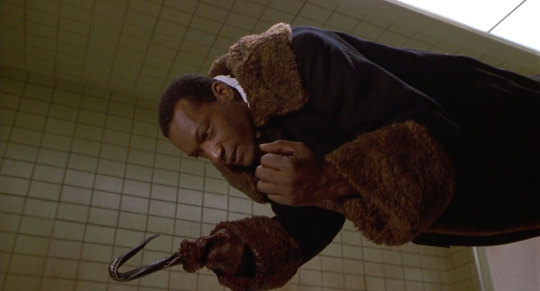
A graduate student (Virginia Madsen) studying urban myths unwittingly summons the Candyman (Tony Todd), the hook-handed ghost of a Black painter who was lynched decades ago.
I expected fun slasher nonsense and instead got a gorgeous, unsettling, modern gothic masterpiece that only occasionally dips its toes into schlock. Candyman is ethereal in all the right ways despite being suffused with despairing urban gloom. I was not surprised to find the script was adapted from a Clive Barker story—like Barker’s The Hellbound Heart (adapted into the Hellraiser films), Candyman is chilling yet eerily beautiful. The moment I finished watching it, I knew this was one I would be itching to revisit. There’s just so much going on regarding race, class, and memory in America. Also, Tony Todd’s voice is a damn treasure.
Merrily We Go to Hell (dir. Dorothy Arzner, 1932)
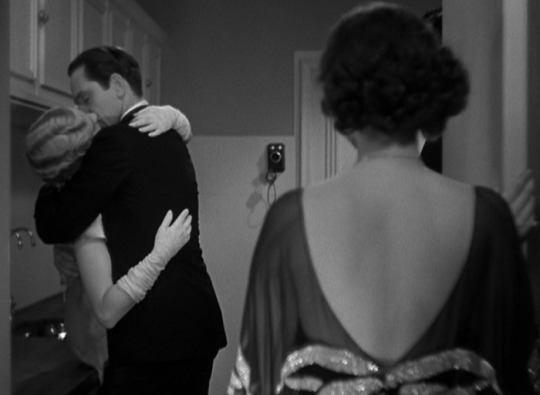
An alcoholic playwright (Frederic March) and his long-suffering wife (Sylvia Sidney) decide to have an open marriage. It doesn't work out well for either of them.
Merrily We Go to Hell is a sneaky piece of work. Reading the synopsis, one expects the usual salacious pre-code melodrama. The first scenes even resemble your usual romantic comedy, with our central couple having a meet-cute. The actual movie is much more complicated. It's about a married couple thinking love is enough to make their union work despite the husband's alcoholism. However, this idea proves erroneous and attempts to numb the pain through hedonism and extramarital vengeance just pour gasoline on the fire. The emotional honesty here is astonishing and even the "happy ending" isn't so uncomplicated when you think about it. So far, this is my favorite film of director Dorothy Arzner.
Up the Down Staircase (dir. Robert Mulligan, 1967)
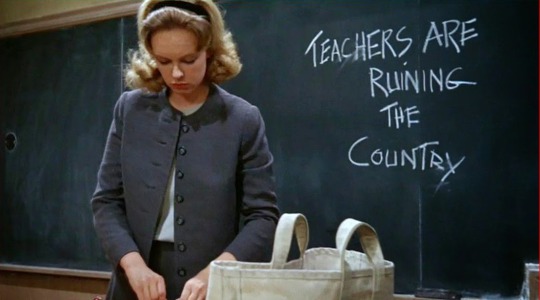
An idealistic young teacher (Sandy Dennis) gets her first position at an inner-city high school. However, she finds her enthusiasm worn down by the school system's bureaucracy and the many psychological troubles of her students and fellow faculty.
Ever since I watched Four Seasons a few years ago, I’ve been intrigued by Sandy Dennis. No matter the role, I find her eccentric yet vulnerable screen presence compelling. Up the Down Staircase was Dennis’ first starring vehicle and an unsentimental look at the teaching profession. Having worked as a teacher and in similar jobs in the past, I related strongly to the main character’s compassion fatigue and her frustrated desire to help make her community a better place. While not a cheery film, it is ultimately an optimistic one, even if that optimism is cautious. And of course, Dennis is damn great as always, whetting my appetite for more of her work.
They Shoot Horses, Don’t They? (dir. Sydney Pollack, 1969)
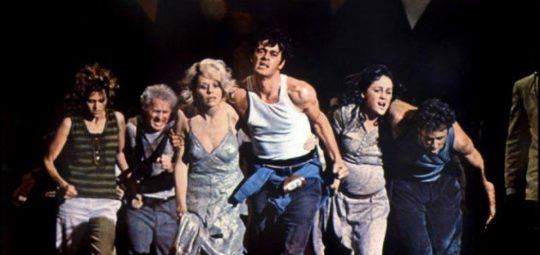
In the thick of the Great Depression, a group of desperate contestants sign up for a grueling dance marathon with a hefty cash prize. Greed, sexual exploitation, health problems, and crushing despair eventually complicate the exhibition.
This movie is so bleak you’ll be just as exhausted as the characters by the tragic finish. I know that doesn’t sound like much of a recommendation, but this is powerful stuff. It does what a great tragedy should do: make you emphasize with the characters and go out into the world more empathetic toward the people around you and more critical of a society in which such awful conditions could be permitted. And like Targets, it’s depressing that this movie’s themes remain relevant to American culture.
Flash Gordon (dir. Frederick Stephani and Ray Taylor, 1936)
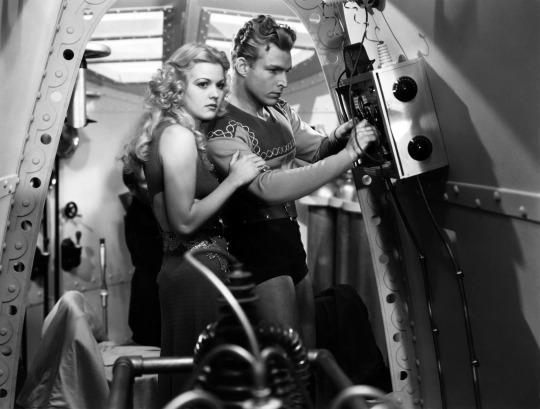
A himbo polo player (Buster Crabbe), a middle-aged scientist in hot pants (Frank Shannon), and an ingenue in a blonde wig (Jean Rogers) must save the Earth from a galactic emperor.
Yes, I’m counting a film serial as a single unit on this list. In this corny, breathless saga can be found the seeds of so many modern blockbuster spectacles. The old school space opera aesthetic is always a joy and I love seeing what George Lucas borrowed from the comic book plot and fantastic images for his Star Wars films. Also, the serial is surprisingly horny for a product released after the death knell of the pre-code era, so that’s fascinating too. I watched the episodes, one a night, usually before a feature film, to recreate at least in part the conditions in which old serials were viewed. I highly recommend that approach if you're interested in watching these kind of films-- NEVER binge them.
Silkwood (dir. Mike Nichols, 1983)
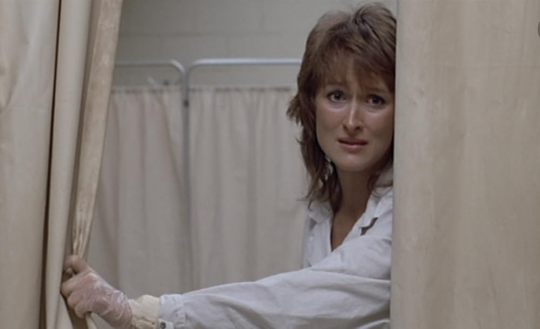
Karen Silkwood (Meryl Streep), a union activist and metallurgy worker at a plutonium processing plant, discovers both she and many of her co-workers have been contaminated with high levels of radiation due to blatant safety violations. Rather than remedy the problem, her employers are determined to keep her quiet, but Karen refuses to back down.
Meryl Streep's performance in Silkwood finally showed me what all the hype around her is about. What an astonishing, natural performance-- I forgot I was watching an actor every moment. As for the overall film, it's one of the stronger docudramas out there (as this film was based on a true story). It isn't just a preachy message piece and it allows Silkwood to be both a heroic figure and a flesh and blood human being with flaws like anyone. The domestic drama involving her lover (Kurt Russell) and lesbian roommate (Cher, who also gives an incredible performance) is almost as compelling as the main story. Though released in the early '80s, it feels like a late manifestation of the paranoia thriller genre of the decade before.
Love with the Proper Stranger (dir. Robert Mulligan, 1963)
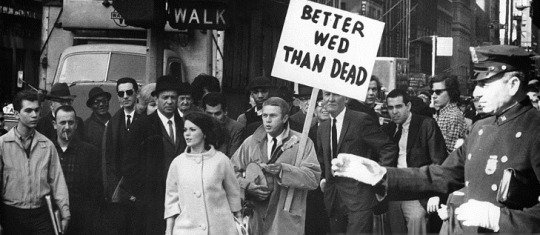
When a one-night stand with a jazz musician (Steve McQueen) leaves her pregnant and at risk of upsetting her very Catholic family, an innocent sales clerk (Natalie Wood) tracks down her lover and demands he help her get an abortion.
Love with the Proper Stranger is such a unique piece of work that I can forgive the elements that dissatisfy me (like the ending). Wood and McQueen's romance starts out acidic and slowly becomes tender over the course of their bizarre misadventure, and the film itself shifts through several moods. Sometimes it feels like an urban drama, other times a romantic comedy. But it somehow holds together, perhaps because of the chemistry between the lead actors.
What were your favorite film discoveries in 2024?
#the window#my neighbors the yamadas#a new leaf#letter from an unknown woman#thieves like us#targets#freud the secret passion#candyman#sudden fear#cactus flower#flash gordon#the black room#up the down staircase#they shoot horses don't they#cash on demand#losing ground#paris is burning#merrily we go to hell#thoughts#silkwood#love with the proper stranger
44 notes
·
View notes
Text
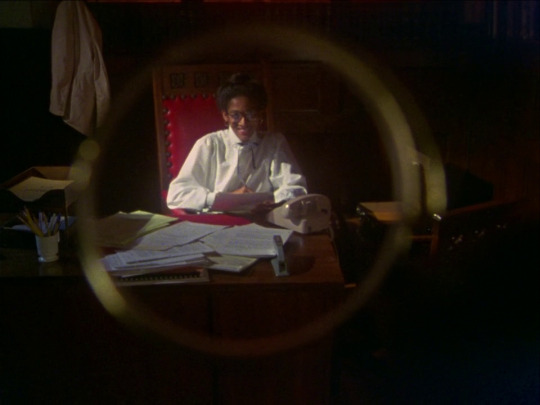
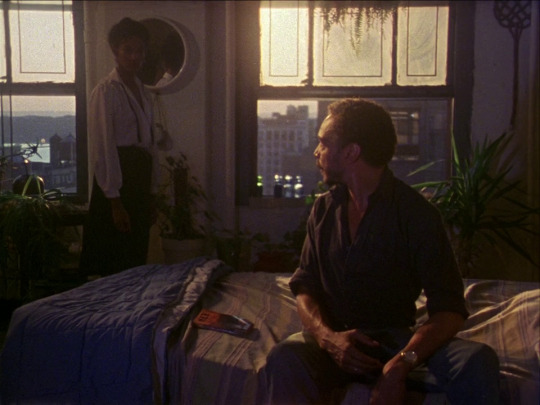
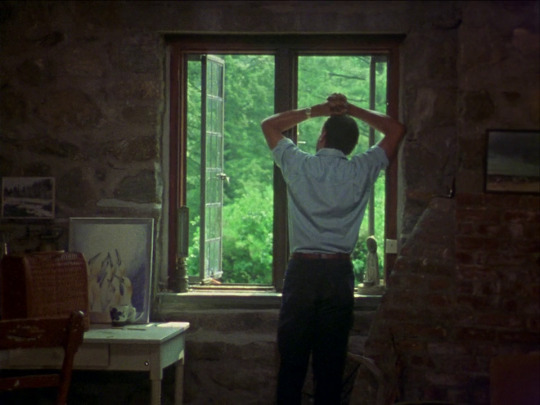


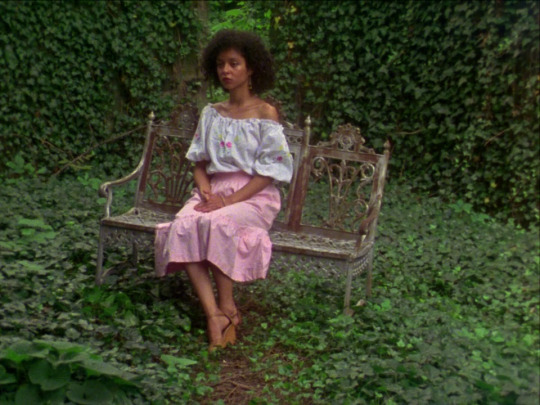
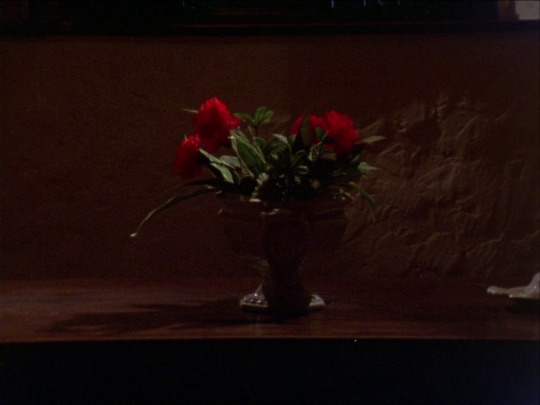
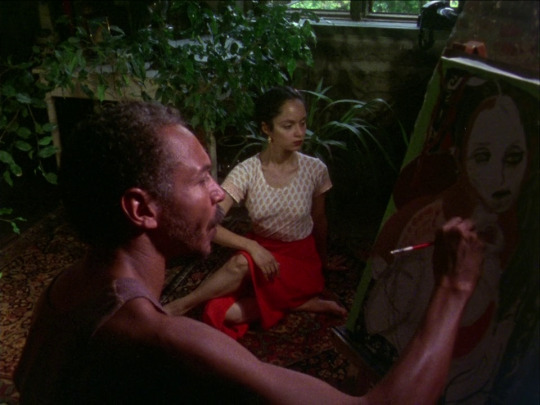
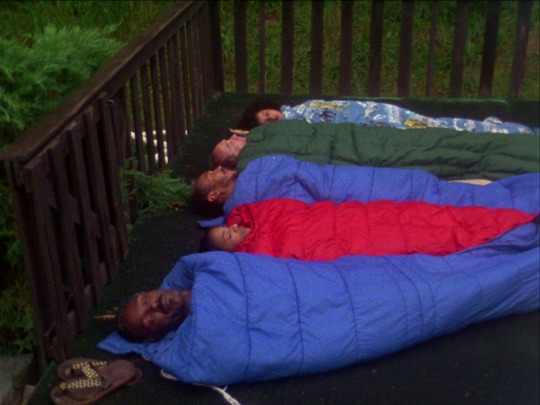

Losing Ground (1982) | dir. Kathleen Collins
#losing ground#kathleen collins#seret scott#bill gunn#maritza rivera#films#movies#cinematography#screencaps
94 notes
·
View notes
Text

Secret Scott, Bill Gunn, and Maritza Rivera in Kathleen Collins’ Losing Ground, 1982
9 notes
·
View notes
Note
Hi! Just thought I'd share that Losing Ground is currently on Kanopy for anyone who has access to it! I'm excited to finally watch it ✨️
Thanks!!!
I love Losing Ground, not only is it a great film but the story of how it was restored and released is incredibly touching and says so much about filial love.
I love that since its release in 2016 it has built up an incredibly stellar reputation.
57 notes
·
View notes
Text


It’s a bit longer than usual so it’s harder to share but I’m glad to have this new prose poem in the current issue of Kenyon Review. It’s inspired by one of my essential films, Losing Ground, and will be in my next book.
2 notes
·
View notes
Text
"I've been acting like I'm strong, but the truth is, I've been losing ground."
- "Dismantling Summer" sung by The Wonder Years
#song#lyrics#music#relatable#bands#relationships#song lyrics#relatable lyrics#sad#sadness#anxiety#losing ground#i'm not okay#the wonder years#dismantling summer#sad lyrics#reality#honesty#strength#falling apart
7 notes
·
View notes
Text

Aerin Doone
One of the Sacred Seers of Soil attending the Boden-Ma University of Geological Studies. Her mixed Elvish and Dwarven heritage gives her an extraordinary appearance and skillset that tends to confuse those of both races, and she sometimes gets teased for not being elegant enough for eleven culture, or on the flipside being beardless and not rough enough for the dwarven culture. She tries not to let it bother her as she forges her own path forward beyond what others make of her...
The Boden-Ma University is one of the various Elemental Magic and Espionage Schools under the Blackveil umbrella. So, on the surface it may appear to be a relatively ordinary Geological school, secretly it's purpose is to train magical agents for a looming war...
#Aerin Doone#Trial by Fire Academy#Trial by fire#Trial by Fire Academy Series#plus size fashion#curvy and cute#plus size woman#dwarf#elf#biracial#mixed race#art#female#Losing Ground#Losing Ground Book#Modern Fantasy#original character#character design#land#earth#soil#element#earth element#Htrae#Land of Htrae#Chiinferno#State_of_Chi
9 notes
·
View notes
Text
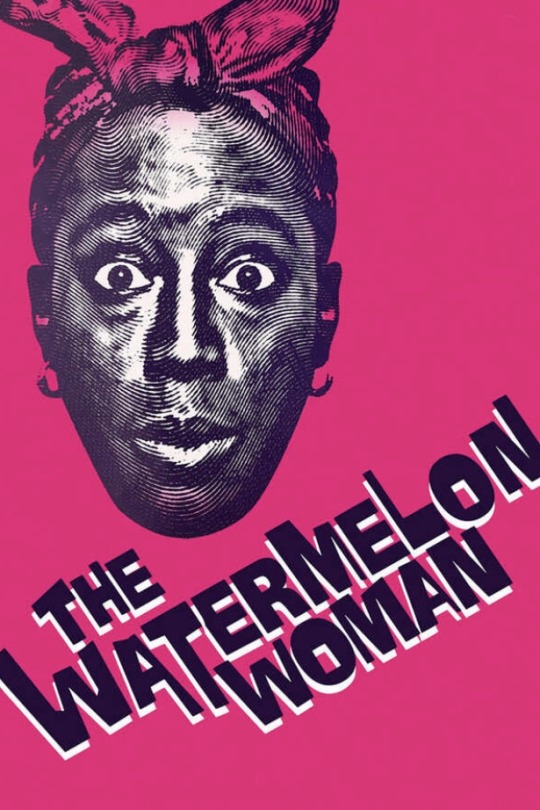
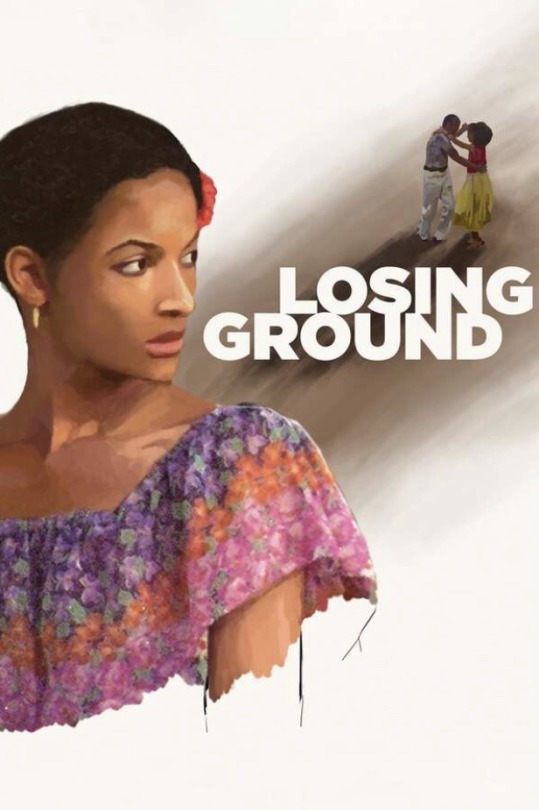
The Watermelon Woman (1996) dir. Cheryl Dunye
Losing Ground (1982) dir. Kathleen Collins
#the watermelon woman#cheryl dunye#losing ground#Kathleen Collins#1990s#1980s#lgbtq#women directors#black cinema#metacinema#double bill suggestions
4 notes
·
View notes
Text
LOSING GROUND:
Repressed professor
Retreats with Artist husband
Acts in student film
youtube
#losing ground#random richards#poem#haiku#poetry#haiku poem#poets on tumblr#haiku poetry#haiku form#Seret Scott#bill gunn#duane jones#kathleen collins#romance#Youtube
1 note
·
View note
Text




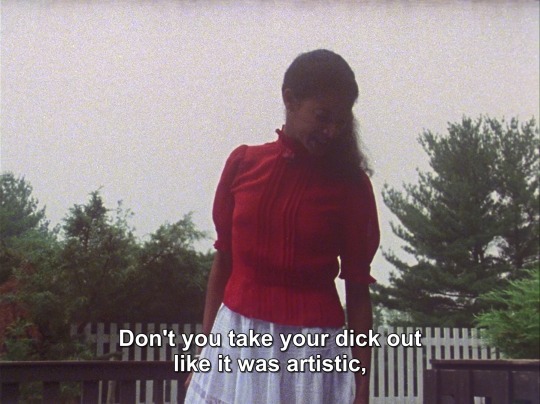



LOSING GROUND (1982) dir. KATHLEEN COLLINS
56 notes
·
View notes
Text
youtube
0 notes
Text
youtube
The Internet - Hold on
[Footage taken from "Losing Ground" (1982) written and directed by Kathleen Collins]
#the internet#syd#rnb#r&b playlist#r&b#slow jams#love#beautiful#black excellence#black artist#black art#hold on#80s aesthetic#80s#80s nostalgia#80s movies#losing ground#1982#Kathleen Collins#Youtube
0 notes
Text
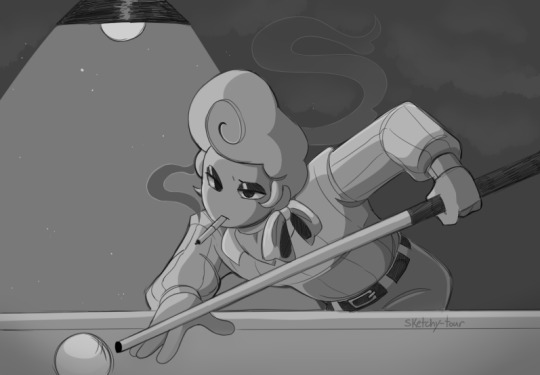




Beta playing pool beta playing pool beta playing pool beta-
ANYWAY! I brain rotted about this idea for a hot minute! Take these beta doodles. Putting them in your hands. Now I can properly beam Beta playing pool into your minds with a visual! Enjoy
#welcome home#welcome home puppet show#welcome home arg#wally darling#beta wally#welcome home fanart#welcome home oc#wh wally#my art#sketches#dandy leon#aaa these are all over the coarse of MULTIPLE days. MULTIPLE DAYS OF JUST! THINKING ABOUT POOL!!!!#I wanted to do a doodle of Dandy getting excited about making one ball into the hole despite still losing#but energy low and I wanna post the main doodle rn not laatteerr#I so wish I coulda made it look cooler. BUT OOOH WELL!!!!!!!!!#flopping on the ground#(I am going to continue thinking about this)
3K notes
·
View notes
Text








Lokius moments that altered my brain chemistry [7/?] ↳ this loud display of intimacy
#lokius#lokitvedit#lokiedit#lokitvsource#marveledit#mcuedit#loki laufeyson#mobius m mobius#loki series#loki disney+#i'm still here!!!#almost a year later and i can't move on#mobius using touch to ground loki (and to reassure himself that loki is actually here)#this was so intimate i'm losing my mind#mine: gifs#lokiusmoments
516 notes
·
View notes